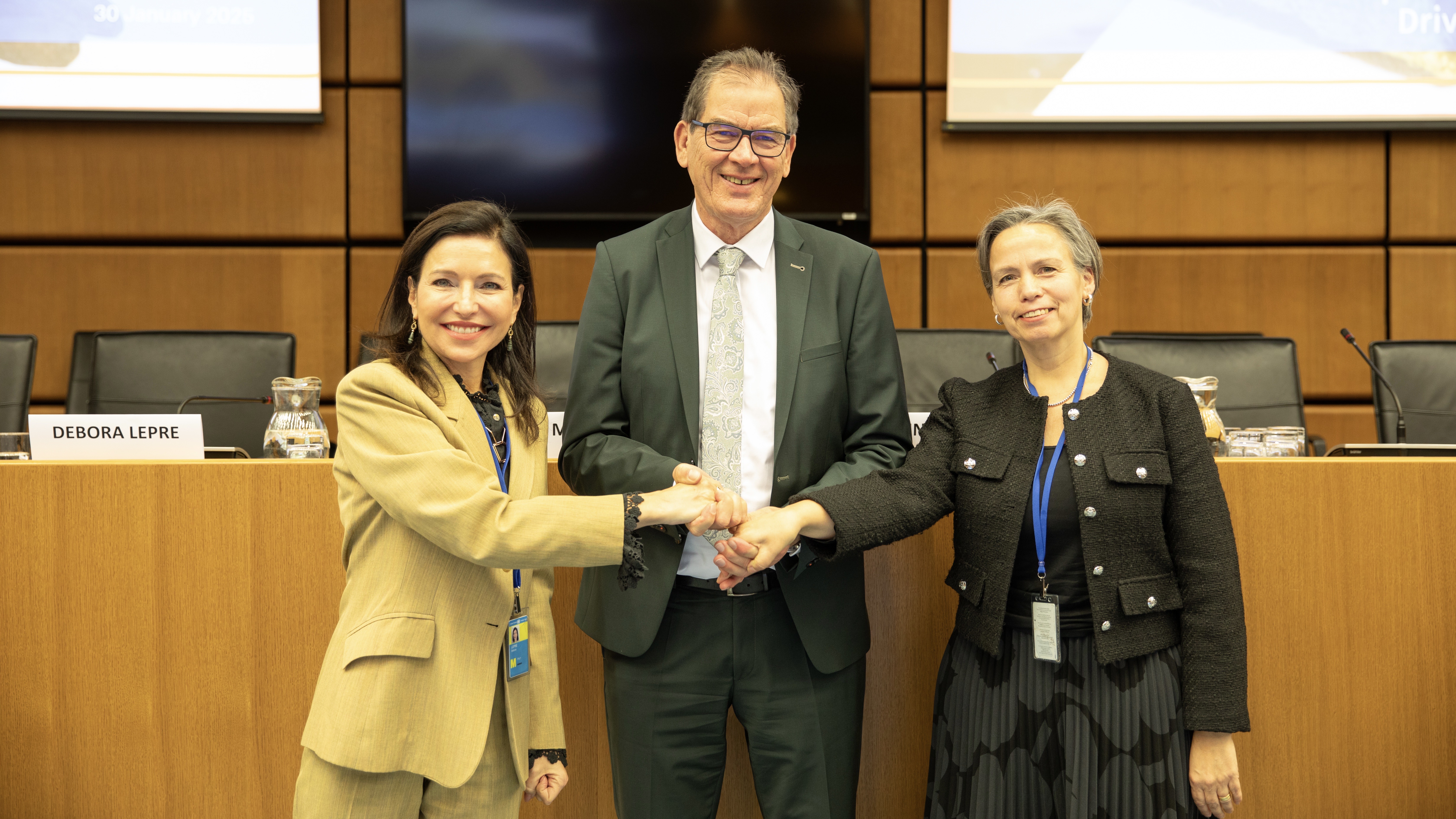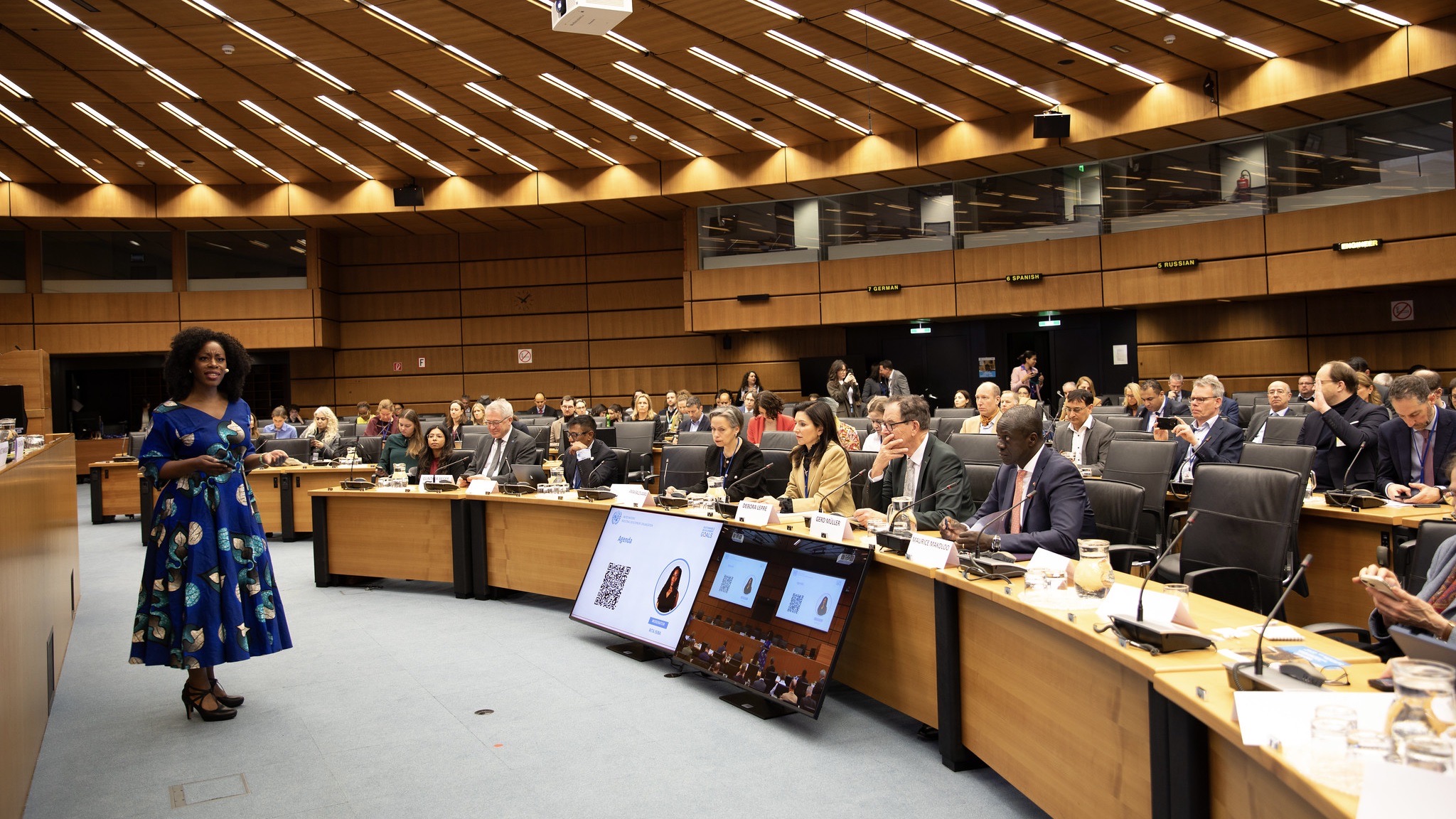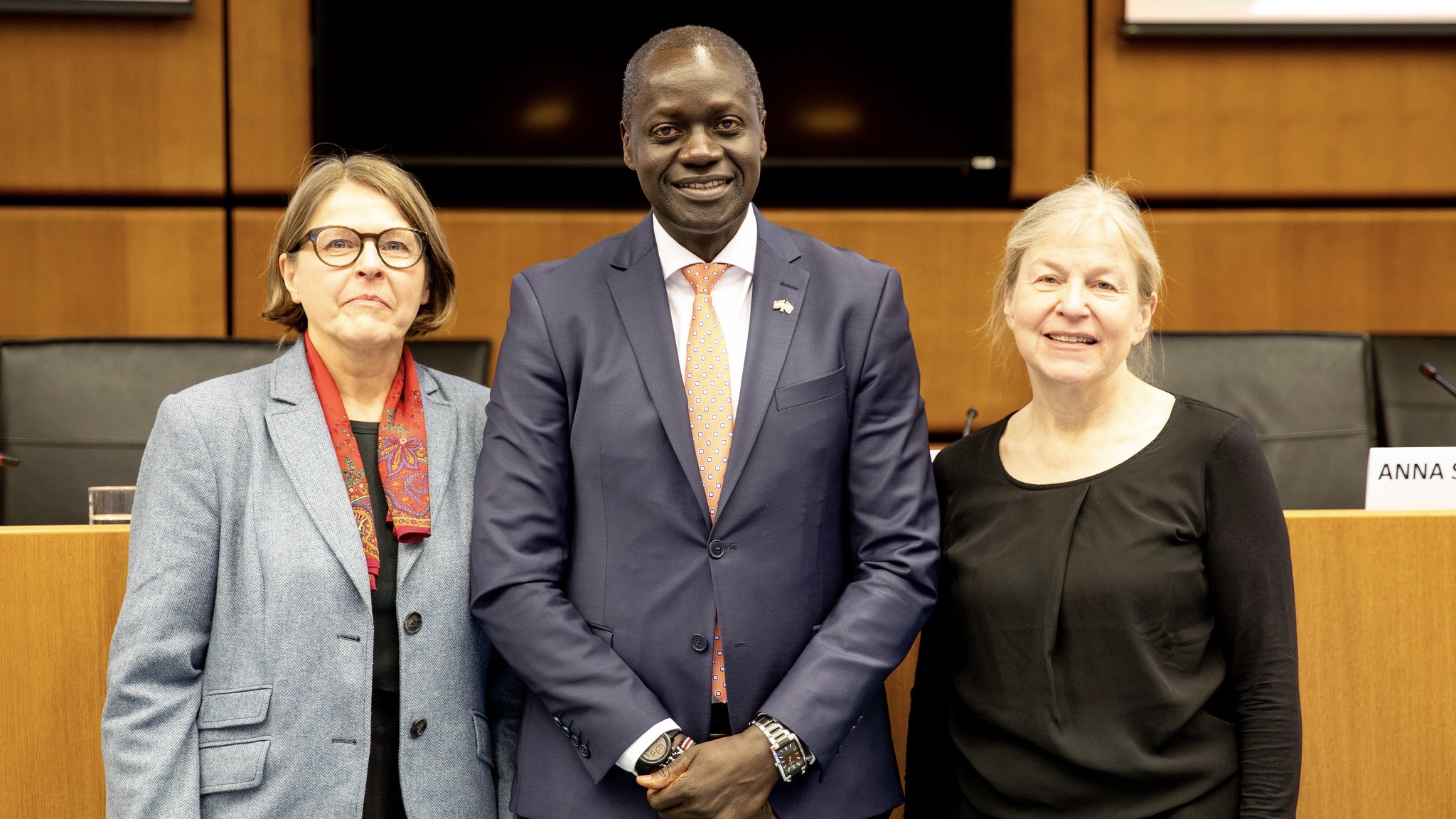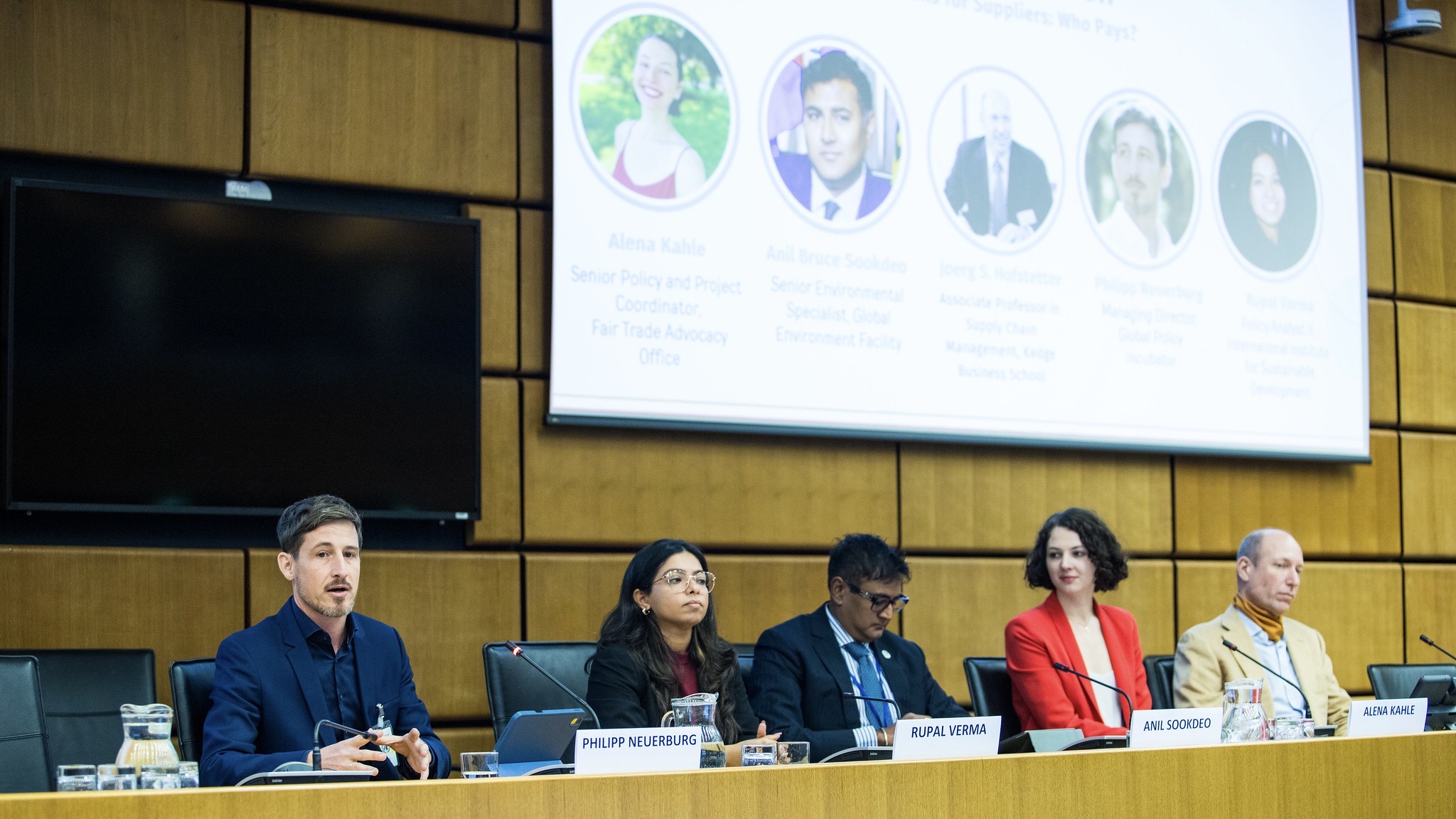

UNIDO hosts "Who Pays?” event to tackle costs of sustainability-driven regulations
30 January 2025

Vienna, 30 January 2025 – The United Nations Industrial Development Organization (UNIDO) convened global experts at the Vienna International Centre for a highly relevant event titled "Who Pays?... for the Implementation of Sustainability-Driven Regulations."
With sustainability-driven regulations increasingly being adopted in various countries, discussions focused on their environmental and social impact across global supply chains. This unique event focused on the pressing question: who bears the cost of implementation? In a strong example of true multistakeholder dialogue, speakers and participants featured representatives from the public, private and non-profit sectors, from producer and consumer countries, and from all tiers of the supply chain. Coming together, they discussed not only the challenges of making supply chains more sustainable but also proposed practical and forward-thinking solutions to address them.
UNIDO Director General Gerd Müller highlighted in his opening remarks that making global supply chains fairer and more sustainable is a priority for UNIDO. “We need a fair globalization. The exploitation of people and nature must end. We need more local value creation in developing countries, fair prices, and above all social and environmental standards which are binding and enforced. For this we must support smaller suppliers and producers in developing countries to implement supply chain sustainability regulations.” He continued: “UNIDO is your partner. We support you in addressing the financial challenges of supply chain regulations, and by providing technical assistance and capacity-building programs to SMEs. Working together, we can create a future where sustainability is an opportunity for growth and prosperity for all.”
The Who Pays event was also an occasion to showcase UNIDO’s ongoing work on sustainable supply chains, highlighting two newly announced projects in collaboration with Finland and Italy.
The first initiative, part of UNIDO’s FairShare global programme on sustainable supply chains, will leverage public-private partnerships to address key environmental and social sustainability challenges, such as living income, skills development, and circularity in supply chains. Funded by the Government of Finland, the project will be implemented in collaboration with three Finnish private sector partners — Fazer, Kone, and Sitra — and will span Ecuador, India, and Zambia.
Anna Salovaara, Deputy Head of Mission, Minister Counsellor at the Embassy and Permanent Mission of Finland to the UN in Vienna, highlighted the importance of this initiative, stating: “This project advances the SDGs and aligns with Finland’s policy priorities by focusing on sustainable value chains and industrial transformation. We are pleased to partner with UNIDO and leading Finnish companies to strengthen supply chains and enhance skills."
Another project will focus on advancing climate-resilience and transformation in Africa’s coffee industry through a continental approach to shared sector challenges. In partnership with the Italian Ministry of Foreign Affairs and International Cooperation (MAECI), the Italian Agency for Development Cooperation (AICS), the European Commission (DG INTPA), and key organizations like the International Coffee Organization (ICO) and the Inter-African Coffee Organization (IACO), UNIDO aims to enhance climate resilience in coffee production, bolster local value-added processing, support compliance with new regulations, promote cutting-edge research on sustainable coffee production, and address social equality within the coffee value chain.
Debora Lepre, Permanent Representative of Italy to the International Organizations in Vienna, emphasized: “Italy and UNIDO have a long track record of successful cooperation in different sectors. This Italian initiative on the coffee supply chain is an excellent example of what effective multilateral cooperation can do to build stronger and more sustainable international supply chains.”
The event's agenda featured three panel discussions, each addressing pressing issues related to sustainability-driven regulations:
What are the costs to implement these regulations? And, conversely, what are the environmental and social costs of delaying action?
What support is needed for producers and suppliers to comply with regulations and benefit from sustainable supply chains? Who should shoulder these costs?
What innovative solutions and financing mechanisms can provide the required support?
Participants highlighted that mandatory regulations are essential for reducing harm caused by unsustainable supply chains, but they come with significant challenges, particularly for resource-constrained farmers, manufacturers, and traders. Supporting these actors with technical, financial, and human resources is vital, and the responsibility for covering these costs must be shared across governments, multinational buyers, and other stakeholders.
Madeline Muga, Strategy and Impact Director of Fairtrade Africa stressed: “We need to ensure that the responsibilities, the understanding, and the compliance burdens are shared equally. Right now, if you protect the forests, you do not get a higher price. Obligations are not coming with additional access to markets. But when businesses make the intentional decision to do business differently, then the farmers will benefit.”
Promoting value addition in producer countries, with an emphasis on decarbonized and sustainable industries, emerged as a key strategy for equitable value distribution. Innovative private-sector approaches, including social procurement and impact investing, are already helping to drive this transition.
To address challenges of the transformation of supply chains, the event presented cutting-edge tools and initiatives developed by UNIDO and its partners. Digital solutions like the Rapid Scan Legislation Navigator help businesses understand their supply chains and comply with emerging regulations, while other programs facilitate partnerships, build capacity, mobilize financing, and promote modern, sustainable business models. Many of these resources are accessible through the UNIDO Solutions Platform, ensuring stakeholders have the support needed to navigate the complexities of sustainable supply chains.
The dialogue and exchange that took place at the Who Pays event came at a crucial moment, as sustainability-driven regulations are rolled out across supply chains globally.
Bringing together stakeholders from all sectors and tiers of the supply chain proved an effective way to build a common understanding of challenges and opportunities. This open dialogue, tackling the pivotal question of who will pay for the urgently needed transition to more sustainable supply chains, sets the stage for collective action. UNIDO looks forward to continuing its work with partners worldwide developing and implementing innovative projects and tools that will shape the supply chains of tomorrow.
In the closing remarks, Carlos Manuel Rodriguez, CEO and Chairperson of the Global Environment Facility stated: “The question of ‘Who pays?’ is not just a financial one, it is a question of values, priorities and our collective responsibility to future generations. We all have a role to play in creating a more sustainable future. We have the will and the know-how. The time for action is now so let's get the work done.”


